Dr. Mardy's Quotes of the Week ("Receiving by Giving")
Dec. 15—21, 2024 | THIS WEEK'S THEME: “Receiving by Giving"
Great Opening Line of the Week
A memorable phrase—like given of his plenty—can sometimes transform a so-so first paragraph into an exceptional one. To me, the phrase suggests people who have more than enough of something—like material wealth, food, time, or resources—and have generously shared their abundance with those who are less fortunate.
For well over 2,000 memorable opening lines from every genre of world literature, go to www.GreatOpeningLines.com.
This Week’s Puzzler
On December 29, 1926, this man died at age 51 (of complications related to leukemia) while residing in a sanatorium near Lake Geneva, Switzerland. At his death, he was Germany’s most popular poet. He was also greatly admired by other poets, including W. H. Auden, Stephen Spender, and Robert Bly.
English writer Colin Wilson said that his Duino Elegies, started in 1912 and finally published in 1923, “might well be called the greatest set of poems of modern times,” adding that they were as influential in Germany and European countries as T. S. Eliot’s The Waste Land was in Britain and America. His other major poetry collection was Sonnets to Orpheus (1923).
He is best remembered to contemporary readers for Letters to a Young Poet, a 1929 book containing letters written from 1903-08 to a young Austrian writer who had sought his advice. This collection of letters, filled with thoughtful reflections on the craft of writing as well as the art of living, have enjoyed a special place in the hearts of aspiring writers ever since.
This week’s Mystery Man was a voluminous correspondent, and his letters to other people also contained many memorable observations. Perhaps the most famous was this thought from a 1907 letter to an Austrian baroness:
Who is this person? (Answer below)
How Much Have You Received by Giving?
The importance of giving is at the heart of every religious tradition, and the intriguing notion that the more we give, the more we possess is part of a grand oxymoronic theme that goes back to antiquity. It was given a central place in Western culture when Shakespeare had Juliet say to Romeo:
In a logical world, the more people give away, the less they possess, but Juliet believes that the more she gives of herself to Romeo, the more she has. Her words are a classic example of a paradoxical truth—literally false, but figuratively true—and they rank right up there with such classic sayings as less is more and the more things change, the more they remain the same.
The phenomenon Juliet is experiencing is not restricted to the romantic arena, for something very similar happens when people selflessly give of themselves through charitable work, volunteer activities, care-taking, and other service-related pursuits. On the surface, it looks like they’re doing things to benefit other people, but in true paradoxical fashion, it is the helpers who are the greatest beneficiaries.
For many years, I thought Juliet’s remark to Romeo was inspired by an observation widely attributed to Saint Francis of Assisi:
“It is in giving that we receive.”
It turns out that I was wrong—along with a whole lot of other people as well. While the “Prayer of Saint Francis” (also called “The Peace Prayer”) is commonly associated with Francis of Assisi—a 13th-century Italian cleric who founded the Franciscan Order—the saying so widely attributed to him has never been found in his works.
We now know that the prayer first appeared in a small French spiritual magazine in 1912. Anonymously authored, it began to be widely circulated during WWI and ultimately went on to become one of Christendom’s most beautiful—and most famous—prayers (note that I’ve presented the key phrase in italics below):
“Lord, make me an instrument of your peace; where there is hatred, let me sow love; where there is injury, pardon; where there is doubt, faith; where there is despair, hope; where there is darkness, light; where there is sadness, joy.
“Oh divine Master, grant that I may not so much seek to be consoled as to console, to be understood as to understand, to be loved as to love; for it is in giving that we receive; it is in pardoning that we are pardoned; it is in dying that we are born to eternal life.”
After learning that the prayer played no role in the creation of Shakespeare’s the more I give, the more I have line, I began to wonder if the idea was original to The Bard, or if he’d been inspired by some earlier version of the thought. It wasn’t long before I discovered a strikingly similar paradoxical insight written more than a thousand years before Shakespeare was born:
Lao-tzu was an ancient Chinese sage whose work would not become well known in the West until several centuries after Shakespeare’s death. His observation above is history’s first on the theme of the more people give, the more people have, and the Shakespeare passage from Romeo and Juliet looks like the first fully-developed articulation of the idea in Western thought.
After Shakespeare’s death in 1616, the world began to increasingly see similar sayings in Western literature. In John Bunyan’s classic Pilgrim’s Progress (1678), for example, the following thought appeared:
“A man there was, tho’ some did count him mad/The more he cast away, the more he had.”
And other popular quotations also contained the essential paradoxical element:
In the future, the underlying idea will almost certainly be tweaked and expanded and taken in new directions. For example, in a 2005 “This I Believe” essay on NPR’s All Things Considered, the writer Isabel Allende said that her new mantra had become:
“You only have what you give. It’s by spending yourself that you become rich.”
Allende said she learned this lesson while mourning the death of her 28-year-old daughter Paula—a young woman who lived a life almost completely devoted to service. She concluded by saying:
This week, take a few moments to reflect on how much “giving” you’ve been doing recently—and what you’ve received in the process. If you conclude that you’ve fallen short of your expectations, always remember that it’s not too late to begin to rectify the problem. To assist you in your reflections, I’ve assembled some of my favorite quotations on the subject:
I have found that among its other benefits, giving liberates the soul of the giver. — Maya Angelou
To give and then not feel that one has given is the very best of all ways of giving. — Max Beerbohm
Giving is more joyous than receiving, not because it is a deprivation, but because in the act of giving lies the expression of my aliveness. — Erich Fromm
It is well to give when asked, but it is better to give unasked, through understanding. — Kahlil Kibran
We make our living by what we get. We make our life by what we give. — Benjamin E. Mays
In giving, you throw a bridge across the chasm of your solitude. — Antoine de Saint-Exupéry
The rule is, we are to give as we would receive, cheerfully, quickly, and without hesitation; for there’s no grace in a benefit that sticks to the fingers. — Lucius Annaeus Seneca (Seneca the Younger)
You have to be very careful when you give to others that you don’t tell them how great you are rather than how much you value them. — Merle Shain
We are rich only through what we give, and poor only through what we refuse. — Anne Sophie Swetchine
The essence of love is not what we think or do or provide for others, but how much we give of ourselves. — Rick Warren
For source information on these quotations, and more observations on the theme of GIVING, go here.
Cartoon of the Week:
Answer to This Week’s Puzzler:
Rainer Maria Rilke (1875-1926)
Dr. Mardy’s Observation of the Week:
Thanks for joining me this week. See you next Sunday, when the theme will be “Holy Days & Holidays.”
Mardy Grothe
Websites: www.drmardy.com and www.GreatOpeningLines.com
Regarding My Lifelong Love of Quotations: A Personal Note

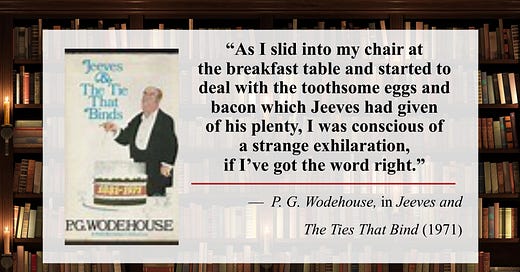



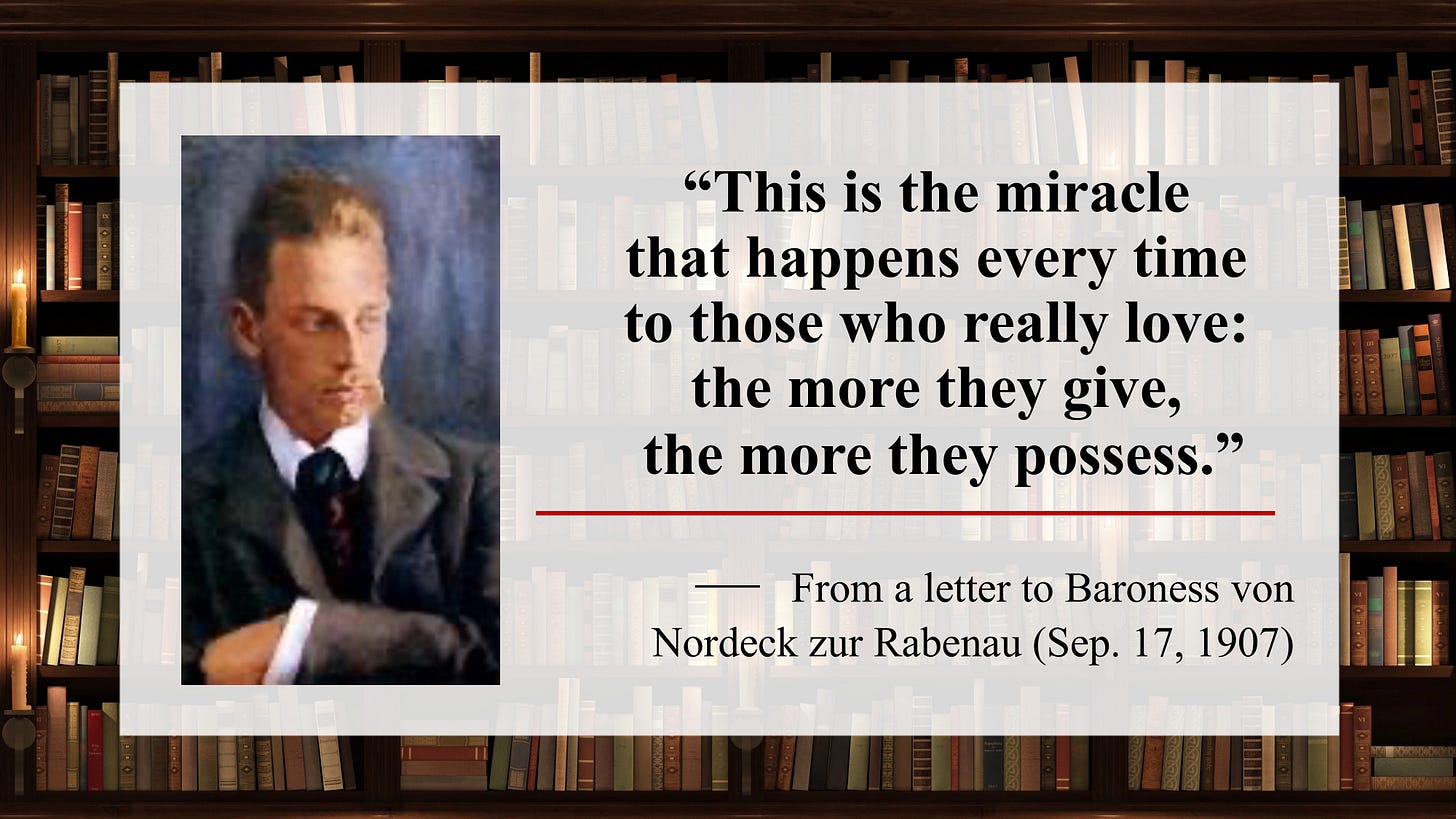
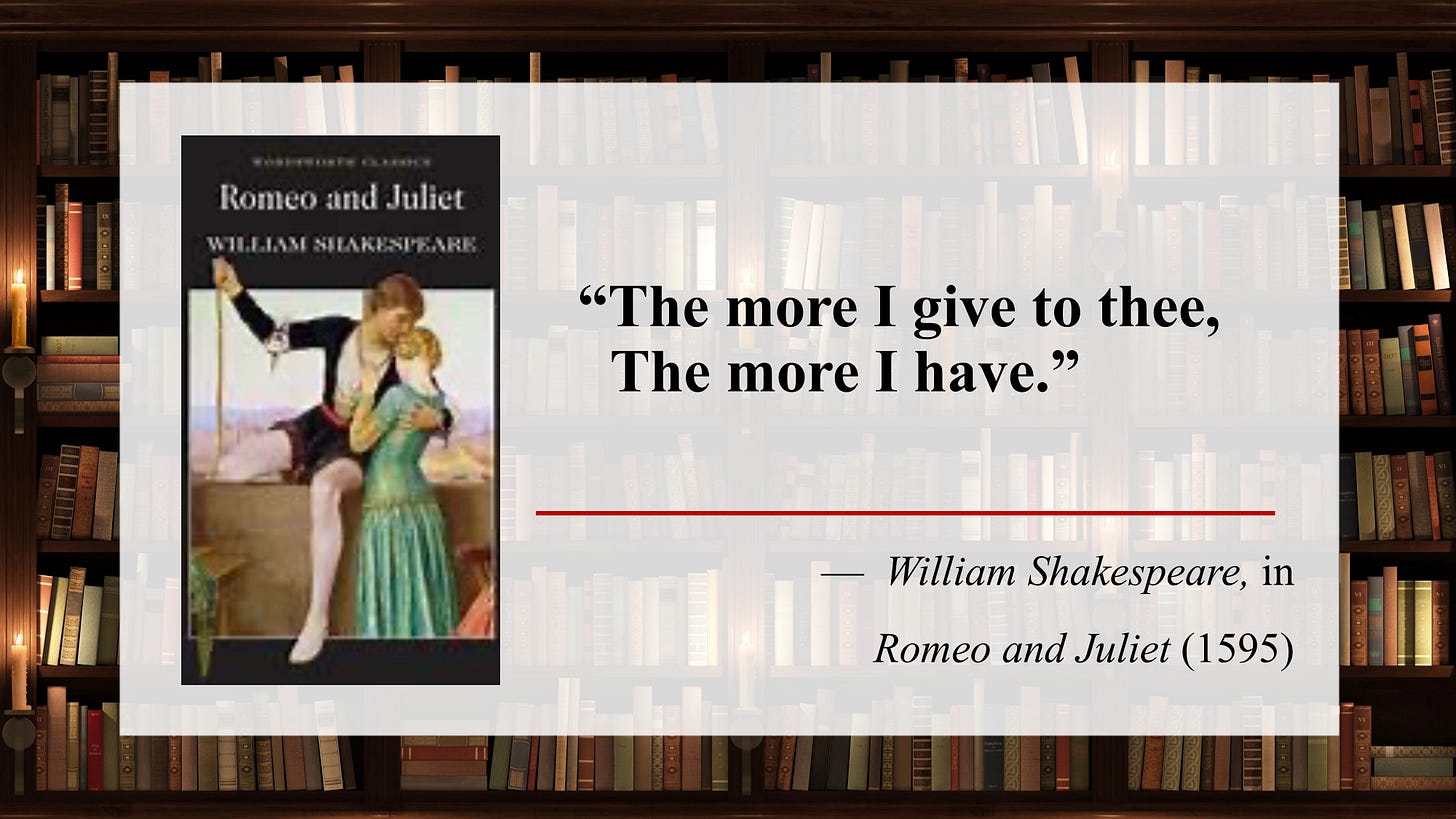
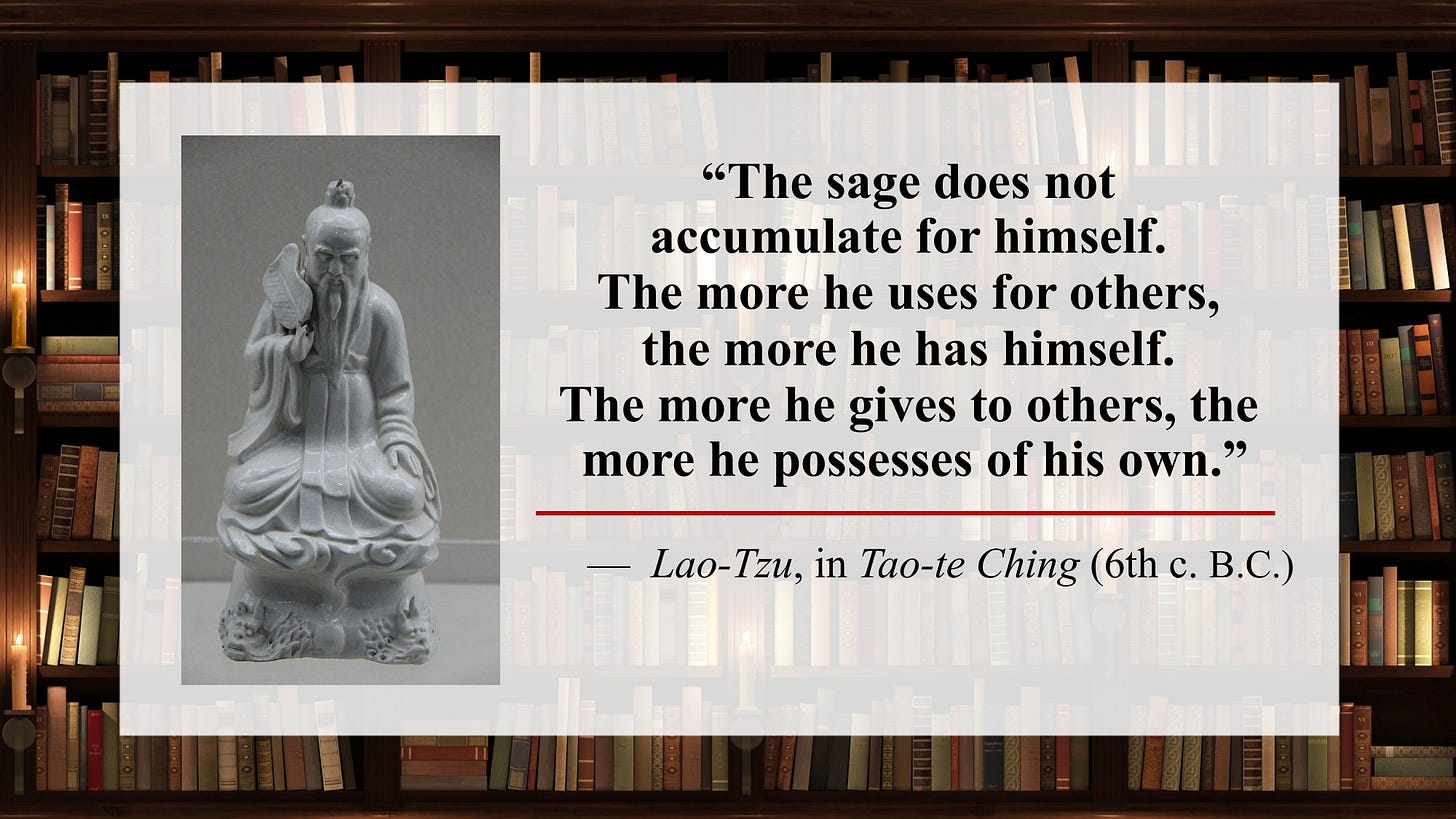
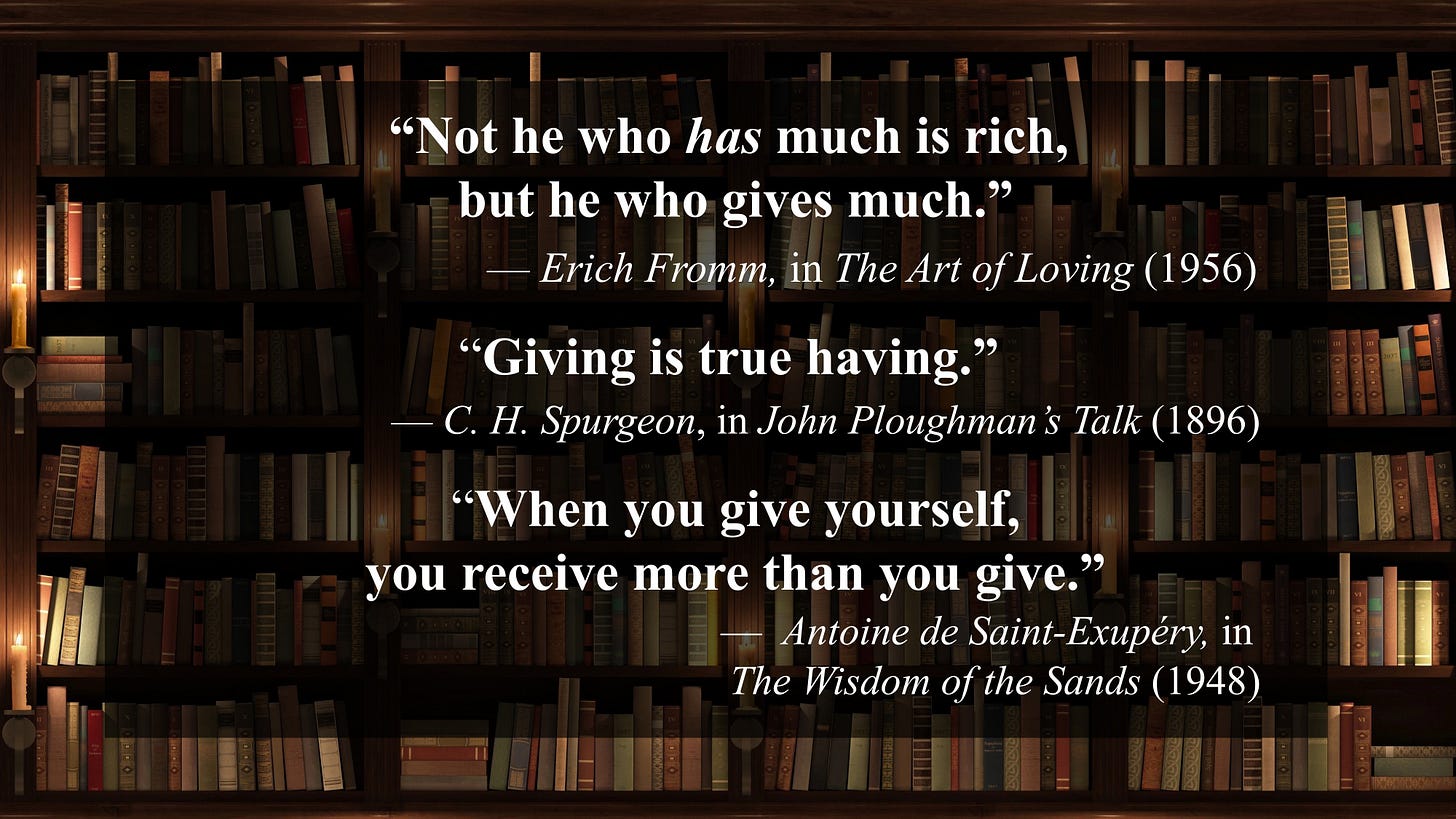
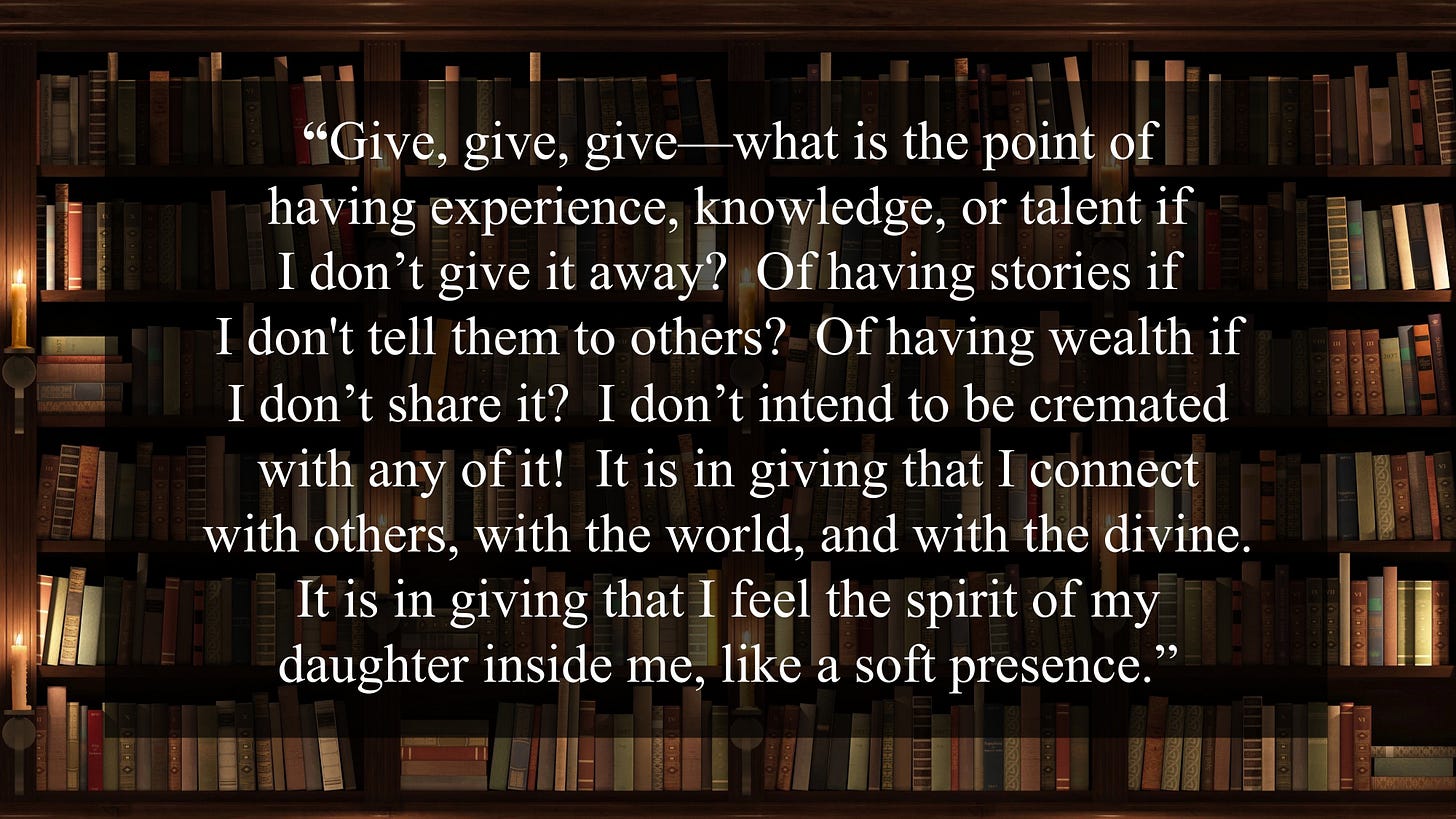
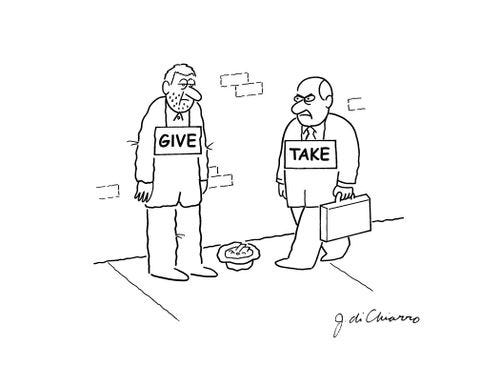
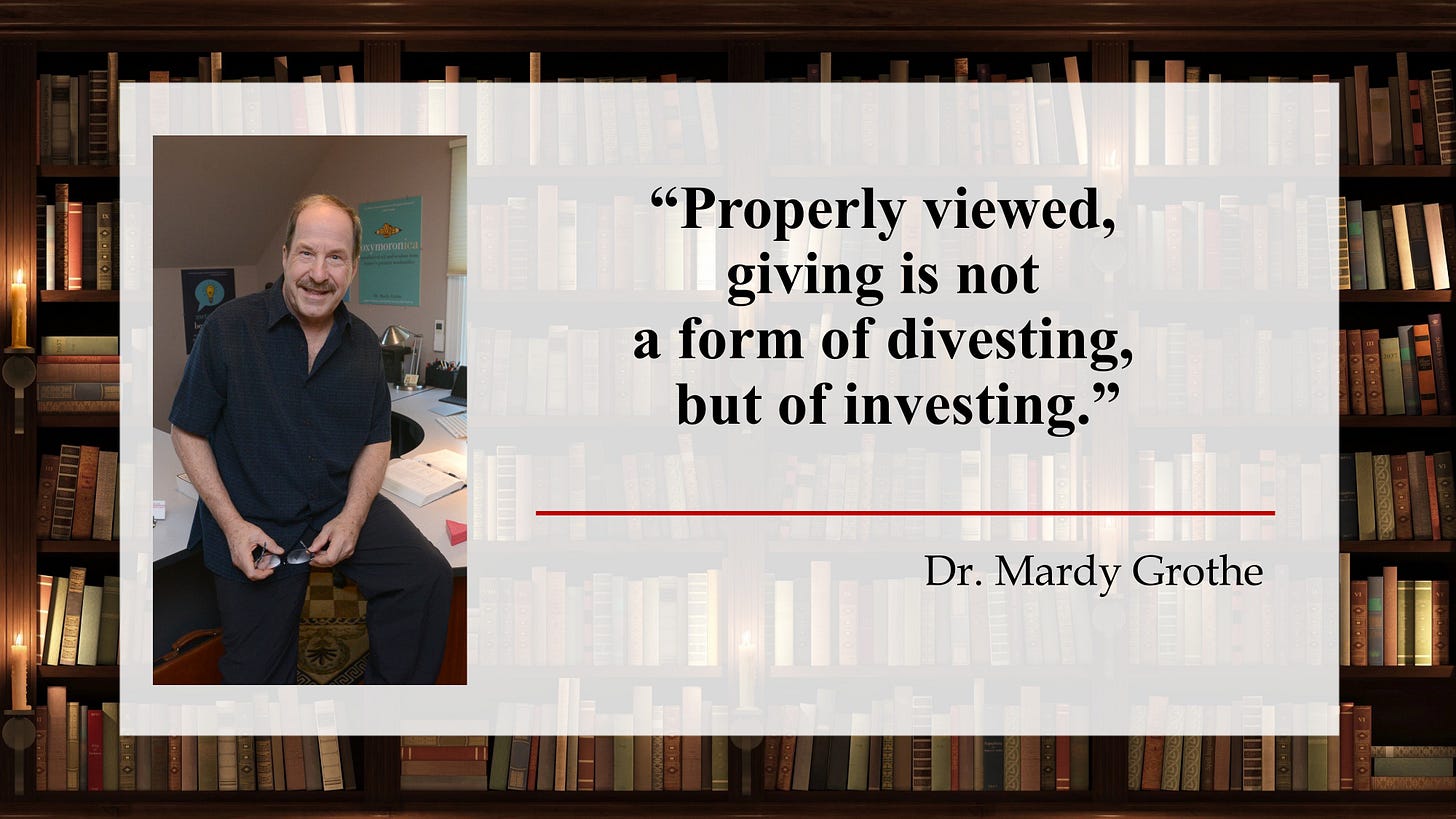
Happy Holidays Mardy and all... For me, the Ultimate Guide to Giving comes from RamBam and his ladder of 7 Steps. Anyone interested can Google RamBam and read his thoughts. Take care everyone and have a safe and peaceful holiday. From the land of St. Nick's birth...
I will always remember when, as a young man, I sent flowers anonymously to one of my father's family friends whom I was visiting. Listening to the speculation about the sender gave me far more pleasure than if I had signed the card! Not exactly selfless giving - but I was young.